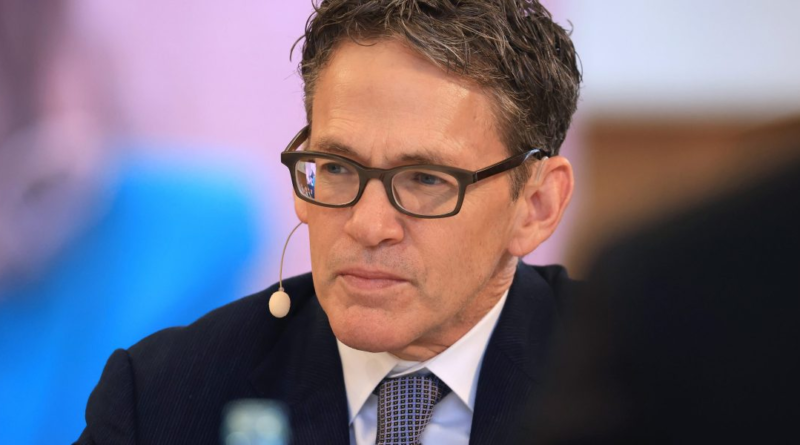Bayer had its worst day ever as shares sunk to the lowest in over a decade
Bayer AG suffered its biggest drop ever, losing about €7.6 billion ($8.3 billion) in market value, after major legal and drug-development setbacks that raise pressure on its new leader to outline a turnaround plan.
The German pharma and agriculture company stopped the main study of its top experimental medicine due to a lack of efficacy and lost a key US trial against its weed killer Roundup. The shares fell as much as 19% in Frankfurt trading to the lowest level in more than a decade.
The events raise the stakes for Bill Anderson, who took over as chief executive in June and said this month he’s weighing a breakup of the pharma and agriculture conglomerate.
Anderson joined as Bayer confronts a thicket of challenges after the $63 billion takeover of Monsanto turned sour and its pharma unit faces patent expirations for some key treatments.
The German company said Sunday it had ended a late-stage test for the anti-thrombotic drug asundexian — a therapy billed as a potential blockbuster — due to a lack of efficacy.
“Asundexian was the pearl of Bayer’s pharma pipeline,” said Markus Manns, a portfolio manager at Union Investment and a shareholder. Bayer should have found a partner to share development costs and risks with, he said.
Roundup Verdicts
The announcement came two days after Bayer’s Monsanto unit was ordered by a Missouri jury to pay more than $1.5 billion to three former Roundup users who blamed their cancers on the controversial product in one of its largest trial losses over the herbicide.
Monsanto has been hit with a recent spate of jury verdicts finding Roundup contains carcinogens. The more than $1.5 billion verdict is one of the largest damage awards handed down against a US corporate defendant this year.
Bayer said it will appeal the verdicts and insists the product is safe. Two years ago, the company set aside as much as $16 billion to resolve more than 100,000 cases over Roundup’s health impact.
The conglomerate now faces a second wave of lawsuits. The legal risks could complicate Anderson’s efforts to spin off the agriculture division, if he opts for that path, Sebastian Bray, an analyst with Berenberg, said in an email.
Bayer is currently in another Roundup trial before a state court jury in Philadelphia involving a man who blames the weed killer for his cancer. The jury is still hearing evidence and closing arguments in the case aren’t expected until later this month or in early December, according to lawyers involved in the case.
Another case is scheduled to start in California in December, with at least three other cases slated to begin in Philadelphia in coming months.
Aging Drugs
The experimental drug that failed, asundexian, was intended to help drive growth after current best-selling medicines Xarelto and Eylea lose their patent protections in coming years.
An independent panel found the treatment underperformed the standard of care when it came to preventing stroke and systemic embolism in patients with a form of abnormal heart rhythm called atrial fibrillation.
The indication represented about €4 billion of the estimated €5.5 billion in peak sales for the drug, Thibault Boutherin and colleagues at Morgan Stanley said in a note Monday. They called the study decision “a meaningful negative.”
Bayer will continue another study with asundexian for preventing strokes, though the market opportunity is smaller, the analysts noted. It will also need to decide whether to move forward with a test in elderly patients, they said.




